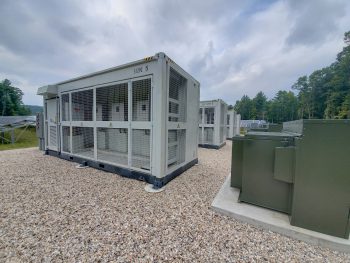SEIA Testimony Urges Mass. DOER to Make Changes to Final SMART Regulations To Protect Solar Jobs
BOSTON, Mass. – Today, the Solar Energy Industries Association (SEIA) in comments and oral testimony urged the Massachusetts Department of Energy Resources (DOER) to make several changes to its proposed new solar incentive program to ensure the Commonwealth protects solar jobs. The Solar Massachusetts Renewable Target (SMART) program proposed by DOER would replace one of the state’s central solar policies, and is expected to be implemented next year.
SEIA issued the following statement from its director of northeast state affairs, David Gahl, who is testifying today in Boston:
“Governor Baker has emerged as one of our nation’s top clean energy leaders, and we thank his Administration for developing a solar incentive program with a long-term vision. While the program has the right aim — to double the state’s solar capacity and bring solar to more in Massachusetts —it needs several critical improvements to ensure its goals are met. We must ensure that those who adopt solar are fairly compensated, that responsible solar installations can be sited across the Commonwealth, and that the final program encourages solar development across diverse market sectors, including community shared solar operations.
“The SMART program is meant to be a long-term policy that provides certainty for solar companies in the state, which is why it’s so important that the Administration get this right. With these revisions and an update to the state’s net metering policy in the fall, Massachusetts will grow its economy, protect solar jobs, and maintain its position as one of our country’s leading solar states. Failure to make these revisions may send the Commonwealth in the wrong direction.”
According to The Solar Foundation’s National Solar Jobs Census, Massachusetts has more than 14,852 solar jobs, the second most of any state and the first in solar jobs per capita. The Commonwealth has installed nearly 1,600 megawatts of solar, making it the sixth largest solar state in the nation. The SMART program is intended to bring the state closer to Governor Baker’s goal of installing an additional 1,600 megawatts of solar by 2020. However, it is separate from net metering, another key piece of solar policy that has reached caps in Massachusetts. The state Legislature is expected to consider raising net metering caps this fall.
###
About SEIA®:
Celebrating its 43rd anniversary in 2017, the Solar Energy Industries Association® is the national trade association of the U.S. solar energy industry, which now employs more than 260,000 Americans. Through advocacy and education, SEIA® is building a strong solar industry to power America.  SEIA works with its 1,000 member companies to build jobs and diversity, champion the use of cost-competitive solar in America, remove market barriers and educate the public on the benefits of solar energy. Visit SEIA online at www.seia.org.
Media Contact:
Alex Hobson, SEIA Senior Communications Manager, ahobson@seia.org (202) 556-2886



